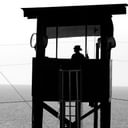March 26, 2006
Does Killing Really Give Closure?
By Dahlia Lithwick
The past few weeks have been rife with the prospect of closure denied.
The families of Slobodan Milosevic’s tens of thousands of victims were ostensibly denied closure when he died before the conclusion of his war crimes tribunal. The decision over where to try exiled Liberian ruler Charles Taylor turns largely on how to afford closure to his victims. And the families of those killed in the Sept. 11, 2001, attacks despaired that government misconduct had ended not only the prosecution, but also their one chance at closure. “I felt like my heart had been ripped out,” said Rosemary Dillard, whose husband died in the attack on the Pentagon. “I felt like my husband had been killed again.“
The death penalty trial of Zacarias Moussaoui has been touted by the government as a way to bring resolution to bereft families. Hundreds watch the proceedings on remote, closed-circuit televisions. Dozens will testify about their losses. This will be their “day in court.” Since as far back as 2002, when then-Attorney General John D. Ashcroft announced he’d seek the death penalty for Moussaoui to “carry out justice,” it’s been assumed that this outcome would bring closure. Just as, in 2001, when Ashcroft decided that family members of the Oklahoma City bombing victims could witness the execution of Timothy McVeigh on closed-circuit television, he said it would “meet their need for closure.”
Why? What’s the empirical basis for the government assumption that all, or even most victims of terrible tragedy will find “closure” through protracted trials and executions?
To the extent the data on the needs of victims suggests anything at all, it says there is no magical solution, no one-size-fits-all mechanism to afford closure to the victims and survivors of violent crime. That makes the Justice Department’s message that healing requires victim participation in the Moussaoui trial and an eventual execution for the offender even more disturbing; it offers the illusion of government-approved “closure” to thousands of people who desperately seek it, but may not ever find it here.
In a seminal 1985 law review article, law professor Lynne Henderson examined the relationship between victims’ rights and criminal justice policy. Looking carefully at the psychological data on the needs of victims, Henderson discovered a wide array of responses to tragedy — responses that differ widely from victim to victim, and that change significantly over a victim’s lifetime. More crucially, Henderson’s research reveals that “common assumptions about crime victims — that they are all ‘outraged’ and want revenge and tougher law enforcement — underlie much of the current victim’s rights rhetoric. But in light of the existing psychological evidence, these assumptions fail to address the experience and real needs of past victims.“
Criminal trials and the promise of an execution offer a seemingly appealing tool for assigning blame and channeling rage. But many crime victims have reported that the endless repetition of their tragic stories, the formal legal rules, and the years and years between appeals only serve to increase stress and delay healing.
This isn’t to say that many victims of 9/11 don’t want to see Moussaoui executed. As the mother of one victim told ABC News, “I was looking to this trial to see if we could eradicate one evil person, to remove one force of evil from this beautiful world.” It is to say that in promoting the notion that only a death penalty can afford closure, the prosecution is disregarding the wants and needs of many others.
This is not the first time we have seen this phenomenon: The survivors of the Oklahoma City bombings who didn’t want to see McVeigh executed were not permitted to offer victim impact statements. As Bruce Shapiro pointed out in a 1997 essay in Salon, the terror trial that made “victim closure” a national buzzword was structured such that “any victim or relative who wanted to play a part in the sentencing phase of the trial first had to pass a death-penalty loyalty test.“
Many, many victims of violent tragedy object to this assumption that their interest in justice is congruent with that of state prosecutors seeking the death penalty. Just last month, Vicki Schieber, the mother of Shannon Schieber, a Wharton Business School student murdered in 1998 by a serial rapist, testified before the U.S. Senate’s subcommittee on the Constitution, civil rights and property rights. As she told the committee: “The word closure is invoked so frequently in discussions of victims and the death penalty that victims’ family members jokingly refer to it as ‘the c word.’ But I can tell you with all seriousness that there is no such thing as closure when a violent crime rips away the life of someone dear to you.” Schieber testified that a single-minded government focus on executions shifts the focus away from other, more meaningful legal reforms that might better honor victims and support their families.
This jibes with Henderson’s empirical data, which suggests that more than anything — maybe even executions — the families of tragedy victims ultimately need answers. They need to know “why.” And perhaps it’s no accident, then, that so many of the 9/11 families who are avidly following the Moussaoui trial say they are not doing so in the hopes of a death sentence. Some don’t want to give Moussaoui the martyr status that he craves. Many others just seem to be looking for answers. As Blake Allison, whose wife was killed, told The Washington Post: “I felt the government wasn’t telling us all that it knew.” Fiona Havlish, who lost her husband, echoed that: “I think what all of us are looking for is the truth, and the truth has not been forthcoming out of Washington.“
And if Henderson’s data is right, and what most 9/11 victims need is answers, you have to wonder whether the government is in fact victimizing them twice with this crazy trial. Not only is the Bush administration still withholding vital information that might afford them comfort. It’s also proving that government incompetence, bureaucracy and willful blindness were as much the reason “why” as Zacarias Moussaoui.
(Washington Post, March 26, 2006)



